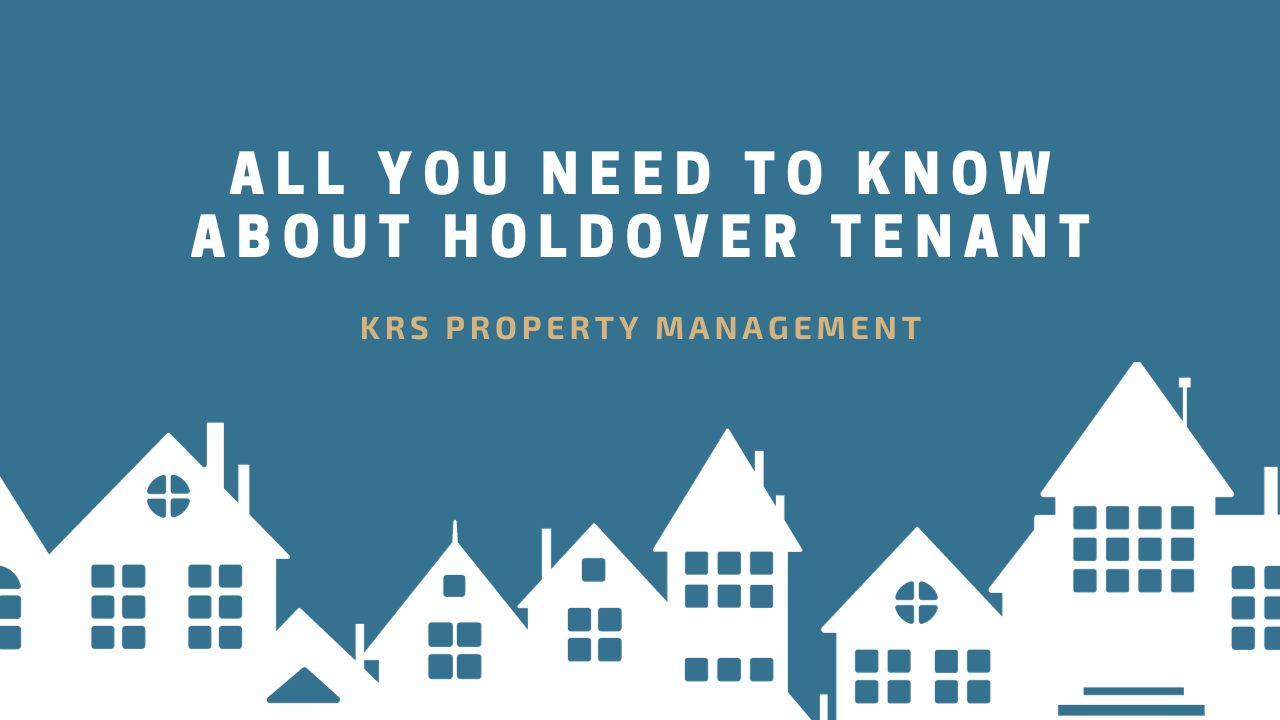
As a landlord, have you ever faced a situation where a tenant continues to occupy the property even after their lease has expired? This is known as a holdover tenant, and it's a critical issue that landlords must navigate with both legal savvy and strategic finesse.
In this article, we'll delve into the essentials of dealing with holdover tenants, exploring your rights, responsibilities, and smart strategies to handle such situations.
What Exactly is a Holdover Tenant?
A holdover tenant is someone who continues to live in a rental property after their lease has ended. This can happen for various reasons, like maybe they haven't found a new place yet or they simply chose not to leave. It's important for landlords to know about this because there are specific rules and steps to follow when dealing with a tenant who stays past their lease term.
Dealing with Holdover Tenants
If you're a landlord with a tenant who stays after their lease ends, you have two choices:
Keep the Tenant
You can decide to let the tenant stay. This means you both agree to a new lease. This new lease can be short-term, month-to-month, or for a longer period. It's a good choice if you're happy with the tenant and want them to stay. Make sure to sign the new agreement and consider conducting a renewal screening check.

Ask the Tenant to Leave
If you don't want the tenant to stay, you can start the process to legally evict them. Before you do this, you should stop taking rent from them. You have to follow specific legal steps to evict someone properly. You can't just change the locks or throw their things out.
It's a good idea to talk to a lawyer when dealing with holdover tenants because the rules can be different from normal eviction. A lawyer can help you understand what you should do.
Tips for Preventing Holdover Tenant Situations
Navigating the issue of holdover tenants requires clear communication, legal understanding, and active property management. Here are effective ways for landlords to prevent this situation:
Comprehensive Lease Agreements
It's crucial to ensure your lease agreements are thorough and specific. This includes detailing the end date of the lease and explicitly stating the terms for renewal or termination. It's also beneficial to have a clearly defined procedure for tenants to inform you of their intent to renew or vacate the property.
To further safeguard against holdover scenarios, consider incorporating specific clauses in the lease that address situations where a tenant stays beyond the lease term. These could include adjustments in rent or specific penalties for overstaying.

Early Lease Renewal Discussions
Don't wait until the last minute to discuss lease renewals. Starting this conversation a few months before the lease expires gives both you and the tenant time to consider your options. This proactive approach also provides an opportunity to renegotiate terms that might be more favorable for both parties.
Proactive and Regular Communication
Establishing regular communication with your tenants can significantly mitigate the risk of holdover tenancy. Schedule periodic check-ins throughout the lease duration to discuss their satisfaction with the property and any future plans they might have. This ongoing dialogue can alert you to potential issues and help build a relationship where tenants feel comfortable discussing their intentions openly.
Enforcing Lease Terms Consistently
Consistency in enforcing the terms of your lease or rental agreement is key to preventing holdover tenancy. If a tenant violates any lease terms, it's important to address these issues promptly and in accordance with the procedures outlined in your lease agreement.
This not only maintains the integrity of your contract but also demonstrates to tenants the importance of adhering to the agreed terms. Consistent enforcement acts as a deterrent against tenants considering overstaying their welcome.
Implementing Holdover Clauses
One effective way to discourage tenants from overstaying is to include specific holdover clauses in your lease agreements. These could be in the form of a defined penalty fee for holdover situations. Such measures act as a strong deterrent and provide a clear financial consequence for tenants who choose to overstay their lease terms.

Conducting Pre-Move-Out Inspections
Scheduling property inspections a few weeks before the lease ends serves several purposes:
- It prepares you for the turnover process by identifying any necessary repairs or maintenance work.
- It acts as a reminder to the tenant about their upcoming move-out date.
- It provides an opportunity for you to discuss any concerns the tenant might have about moving out.
Staying Informed
Understanding the specific landlord-tenant laws in your area is crucial, particularly those pertaining to holdover tenancy. These laws can vary greatly, and being well-informed positions you to handle such situations more effectively.
Additionally, consulting with a property attorney ensures that your lease agreements are legally sound and include all necessary provisions to address holdover scenarios. Legal counsel can provide invaluable guidance in drafting lease terms that protect your interests while being fair and compliant with local regulations.
Building Positive Tenant Relationships
Cultivating a positive relationship with your tenants can play a significant role in preventing holdover issues. Tenants who have a good rapport with their Richmond Area landlord are generally more likely to communicate their plans and adhere to lease terms. Efforts to maintain this relationship can include prompt responses to maintenance issues, regular check-ins, and showing respect for tenant rights.
Bottom Line
Understanding how to navigate the complexities of holdover tenancy is crucial for any landlord. By following the strategies outlined, you can effectively manage your property and avoid potential headaches.
Remember, while these tips are helpful, sometimes the best solution is to enlist the help of professionals. A property management company like KRS Holdings in the Richmond Area can provide invaluable assistance, ensuring your property is managed efficiently and your tenants are taken care of. Contact us today to learn more!






